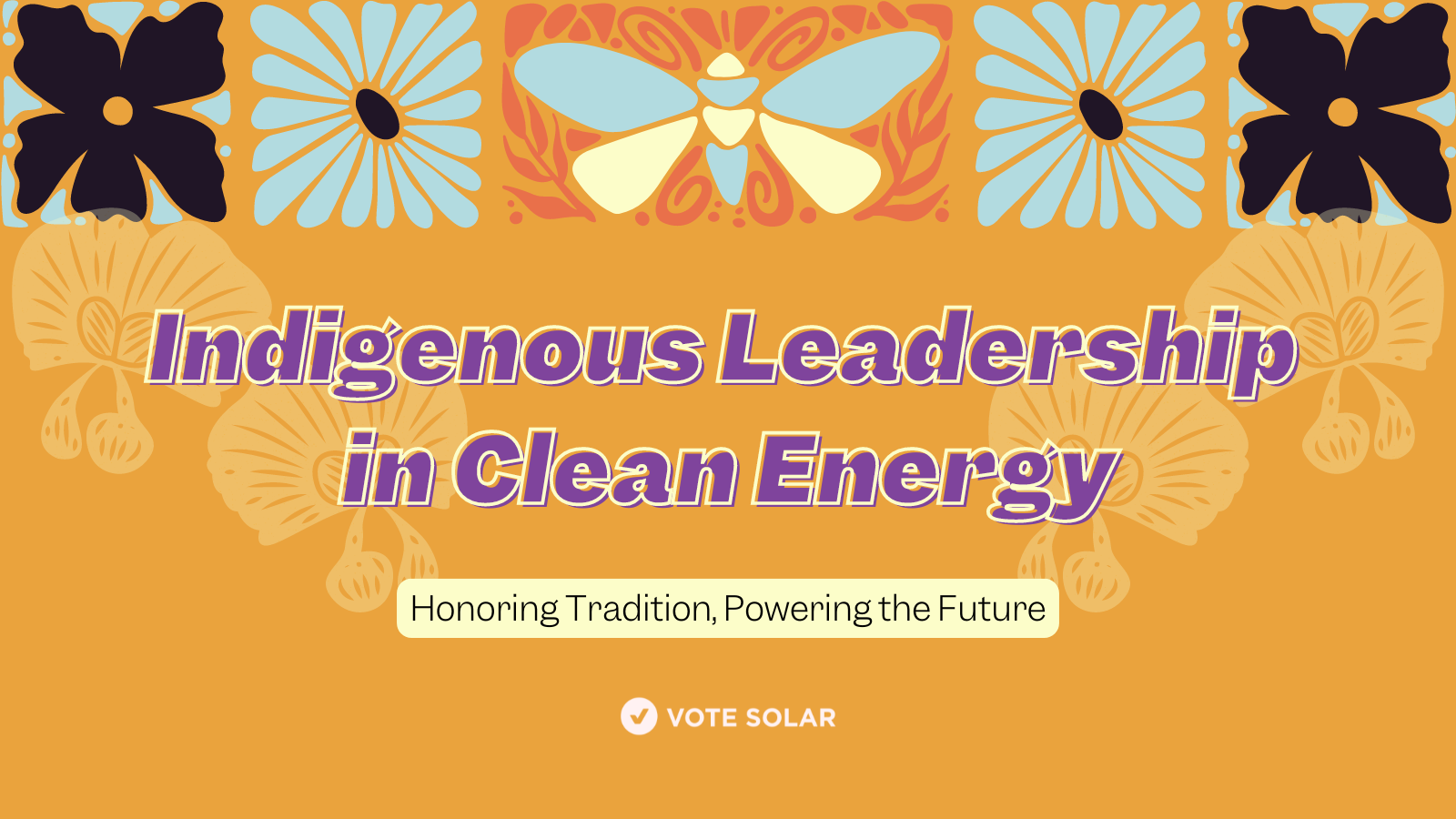Indigenous Leadership in Clean Energy: Honoring Tradition, Powering the Future
 As we commemorate Indigenous Peoples’ Day, we celebrate the rich cultural heritage of Indigenous communities and their pivotal role in shaping a sustainable future. Today, we shine a light on the innovative efforts of two Indigenous leaders who are spearheading the clean energy revolution, seamlessly blending traditional wisdom with cutting-edge technology.
As we commemorate Indigenous Peoples’ Day, we celebrate the rich cultural heritage of Indigenous communities and their pivotal role in shaping a sustainable future. Today, we shine a light on the innovative efforts of two Indigenous leaders who are spearheading the clean energy revolution, seamlessly blending traditional wisdom with cutting-edge technology.
Since time immemorial, Indigenous peoples have been conscious stewards of the land, maintaining a delicate balance between human needs and environmental preservation. Now, as the world grapples with the urgent need for clean energy solutions, Indigenous communities are reasserting themselves as natural leaders in the transition to renewable resources. At the forefront of this movement is the concept of energy sovereignty — the right of communities to make their own decisions about energy generation, distribution, and consumption.
Mayane Chavez Barudin: Champion of Energy Sovereignty
Mayane Chavez Barudin, a proud member of Kewa (Santo Domingo) Pueblo, has dedicated her career to advocating for an inclusive clean energy transition that centers Indigenous voices. As founder and Executive Director of Sovereign Energy, a Native-led nonprofit, Mayane works to help Tribal Nations take control of their energy futures. Her focus is on Tribal education, technical support, and bridging Indigenous leaders with state and federal agencies.
Mayane also played a crucial role in the passage of New Mexico’s 2021 Community Solar Act, a landmark piece of legislation that opened up the solar energy market to local Tribes and allowed more communities to benefit from clean energy. Her work demonstrates how renewable energy can go hand in hand with cultural preservation and economic resilience.
Marissa Naranjo: Defender of Sacred Sites and Cultural Heritage
Marissa Naranjo, from the Pueblos of Santa Clara, Santo Domingo, and Cochiti, has built a career around protecting sacred sites and cultural resources while advocating for environmental justice at the highest levels of government. As a Deputy Director of Sovereign Energy, Marissa has been instrumental in advancing Tribal energy sovereignty and shaping the organization.
Marissa’s work spans across the Southwest and Pacific Northwest, where she has engaged in legislative, legal, and administrative efforts to safeguard Indigenous lands from the impacts of climate change and environmental degradation. Her previous work with the All Pueblo Council of Governors (APCG) was crucial in advocating for the protection of sacred sites like the Greater Chaco and Bears Ears National Monument.
Bridging Tradition and Innovation
Rather than viewing renewable energy solely as a technological solution, leaders like Mayane and Marissa integrate it into a broader vision of community well-being and cultural preservation. Sovereign Energy was founded recognizing Indigenous voices and leadership as paramount to a just, equitable, and clean energy future. The legacies of energy extraction, exploitation, and political barriers to tribal energy sovereignty continue to disrupt and cause harm to Indigenous communities and Tribal Nation building. Sovereign Energy works across the Southwest with Tribal governments and Indigenous Communities to change this paradigm, foster a regenerative energy future, create meaningful action toward climate goals, and ignite reparations for injustices caused by harmful energy development practices. The five pillars of Sovereign Energy’s strategic initiatives include (1) renewable energy education; (2) Tribal capacity building (3) policy & regulatory advocacy; and (4) cultural resource protection.
This approach serves as a model for how organizations can better include Tribal voices in the renewable energy sector.
Challenges and Opportunities
Despite these successes, Indigenous clean energy leaders face significant challenges. Limited access to capital, complex regulatory environments, and the legacy of historical injustices often create hurdles in creating change. These obstacles have also sparked innovative solutions, such as the community solar initiatives championed by Mayane and Marissa, but major improvements to our energy system as it stands are vital across Tribal Nations.
The Path Forward: A Just and Inclusive Energy Future
Indigenous leaders in clean energy are ready to lead the movement forward. The work of leaders like Mayane and Marissa is paving the way for a just and equitable transition to renewable energy, one that prioritizes Tribal sovereignty, cultural preservation, and environmental justice.
Their leadership serves as an inspiration to organizations beyond Sovereign Energy, demonstrating that Indigenous peoples must be at the center of the clean energy movement. Efforts are underway to bolster networks of Indigenous clean energy practitioners, facilitating knowledge-sharing and collaboration across communities and nations.
Honoring the Past, Energizing the Future
On this Indigenous Peoples’ Day, we recognize that the path to a sustainable future is illuminated by the wisdom of Indigenous traditions and the innovative spirit of leaders like Mayane and Marissa. By supporting Indigenous-led clean energy initiatives, we not only address climate change but also promote social justice, economic empowerment, and cultural preservation.
As we face the urgent need to transition to a 100% clean energy system, let us look to Indigenous leaders for inspiration. Their approaches remind us that true sustainability comes not just from new technologies, but from a fundamental shift in how we relate to the Earth and to each other.
In honoring Indigenous leadership in clean energy, we celebrate a vision of the future that is clean, sustainable, and culturally rich. The work of Mayane, Marissa, and countless other Indigenous leaders in this field ensures that future generations can maintain their lives while embracing the possibilities of clean energy.

